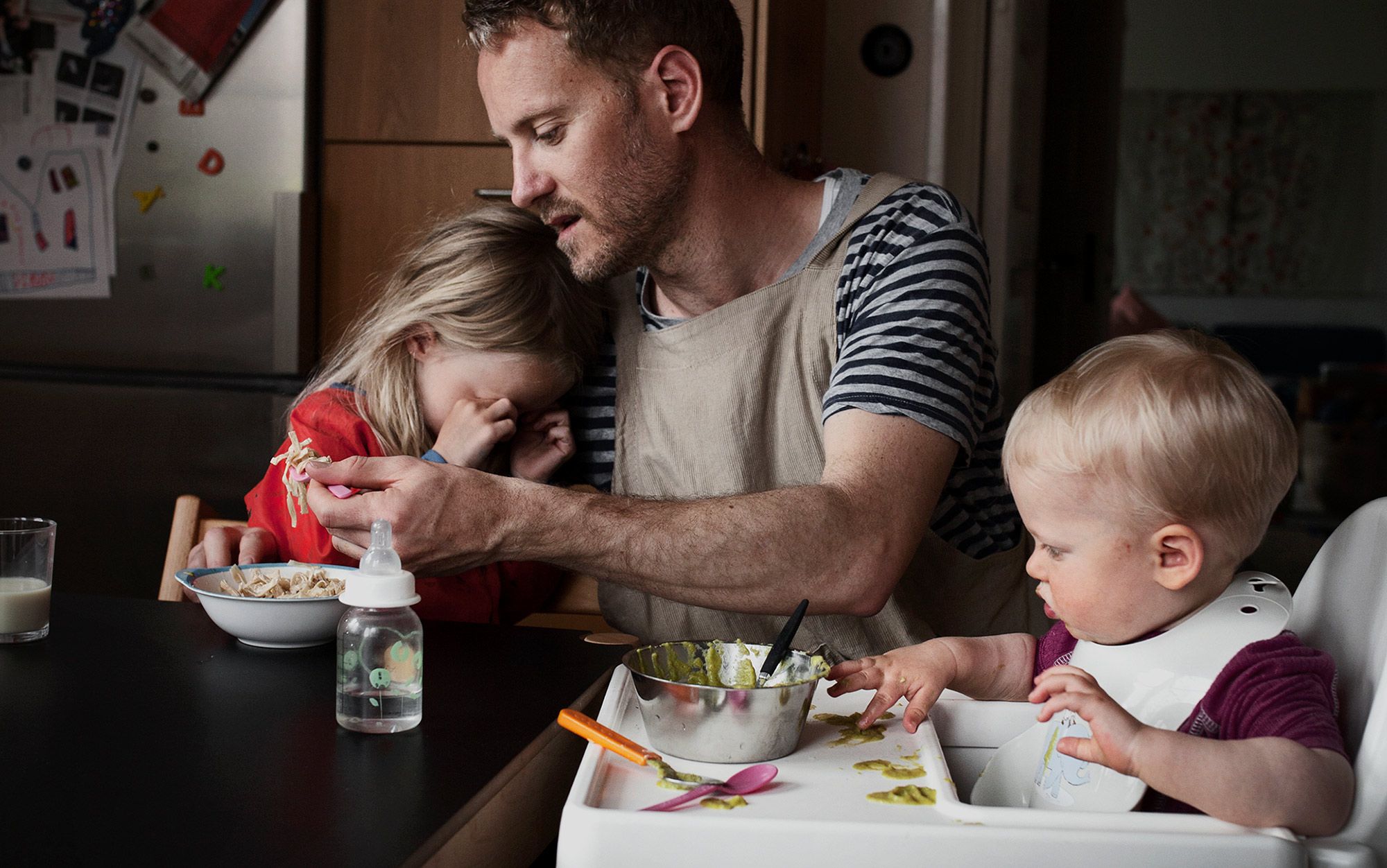by RICHARD W. ORANGE
 PHOTO/Johan Bavman from his series ‘Swedish Dads’
PHOTO/Johan Bavman from his series ‘Swedish Dads’
‘Something happens to the men who come here,’ says Lisa Lindell, observing the first arrivals at her drop-in centre for new parents in Malmö, Sweden. One, a straggly haired Israeli scientist, has built a perfect pyramid out of Play-Doh for his daughter. A Swedish restaurant manager is sprawled on the floor as his son presents him with various objects.
‘We think it’s a revolution,’ her colleague Karin Hallback Stigendal chimes in. ‘These daddies here, they’re very much closer to their feelings. They couldn’t harm another person. Children will change their minds, and that will be good for our society.’
Sweden is leading the fight for gender-equal parenting – men here get three months of paid, use-it-or-lose it paternity leave for each baby (in fact, many take more) – and Lisa and Karin are its warm, welcoming stormtroopers. Since they started trying to lure dads to their centre a decade ago, numbers have grown steadily until, recently, the fathers began to outnumber the mothers.
‘My patience levels have sky-rocketed,’ reports the restaurant manager. ‘There’s not so much “me” in focus any more. It’s all “him” now.’
The scientist hasn’t noticed much change, but as we bond over having given our daughters the same rare Nordic name, I’m struck by something about the way he is standing, his one-year-old perched on a stuck out hip. He’s one of a legion of Sweden’s ‘latte pappas’, as the country’s legion of scruffy men with prams are known. I’ve been one myself, taking six months off twice over the past four years to be the main carer for my daughter and then son. One afternoon in the playground, I began to notice the high, exaggerated voices many of my latte pappa acquaintances used with their babies – clear ‘motherese’.
I felt compelled to find out if I was imagining it, and quickly discovered an explosion of new research demonstrating the dramatic impact that fatherhood has on men’s hormones – along with their affect and talent for staying attuned. A 2011 longitudinal study of 624 Filipino men showed evening testosterone dropping by a median of 34 per cent in the first month after becoming fathers (the most extreme case saw a drop of 75 per cent). Levels of oxytocin, the so-called ‘cuddle hormone’, almost double in fathers between the time the mothers become pregnant and the first months of fatherhood. Prolactin, the hormone that triggers lactation in women, was almost a fifth higher in fathers of infants than in non-fathers. Fatherhood also physically alters the brain. In a 2014 study, researchers scanned men’s brains in the first month after their children were born, and then again after the fourth month. It turned out that gray matter grew in areas linked to reward, attachment and complex decision-making.
Aeon for more
